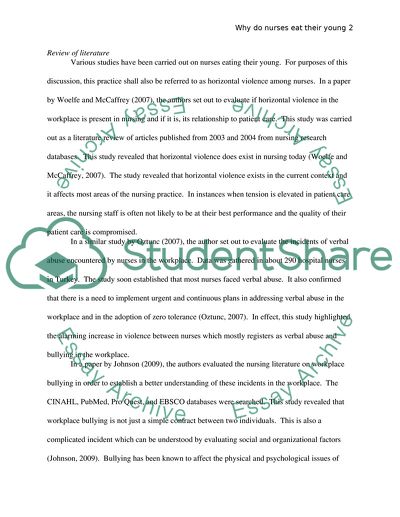Cite this document
(Why do Nurses Eat Their Young Term Paper Example | Topics and Well Written Essays - 1500 words - 1, n.d.)
Why do Nurses Eat Their Young Term Paper Example | Topics and Well Written Essays - 1500 words - 1. Retrieved from https://studentshare.org/nursing/1750964-why-do-nurses-eat-their-young
Why do Nurses Eat Their Young Term Paper Example | Topics and Well Written Essays - 1500 words - 1. Retrieved from https://studentshare.org/nursing/1750964-why-do-nurses-eat-their-young
(Why Do Nurses Eat Their Young Term Paper Example | Topics and Well Written Essays - 1500 Words - 1)
Why Do Nurses Eat Their Young Term Paper Example | Topics and Well Written Essays - 1500 Words - 1. https://studentshare.org/nursing/1750964-why-do-nurses-eat-their-young.
Why Do Nurses Eat Their Young Term Paper Example | Topics and Well Written Essays - 1500 Words - 1. https://studentshare.org/nursing/1750964-why-do-nurses-eat-their-young.
“Why Do Nurses Eat Their Young Term Paper Example | Topics and Well Written Essays - 1500 Words - 1”, n.d. https://studentshare.org/nursing/1750964-why-do-nurses-eat-their-young.


